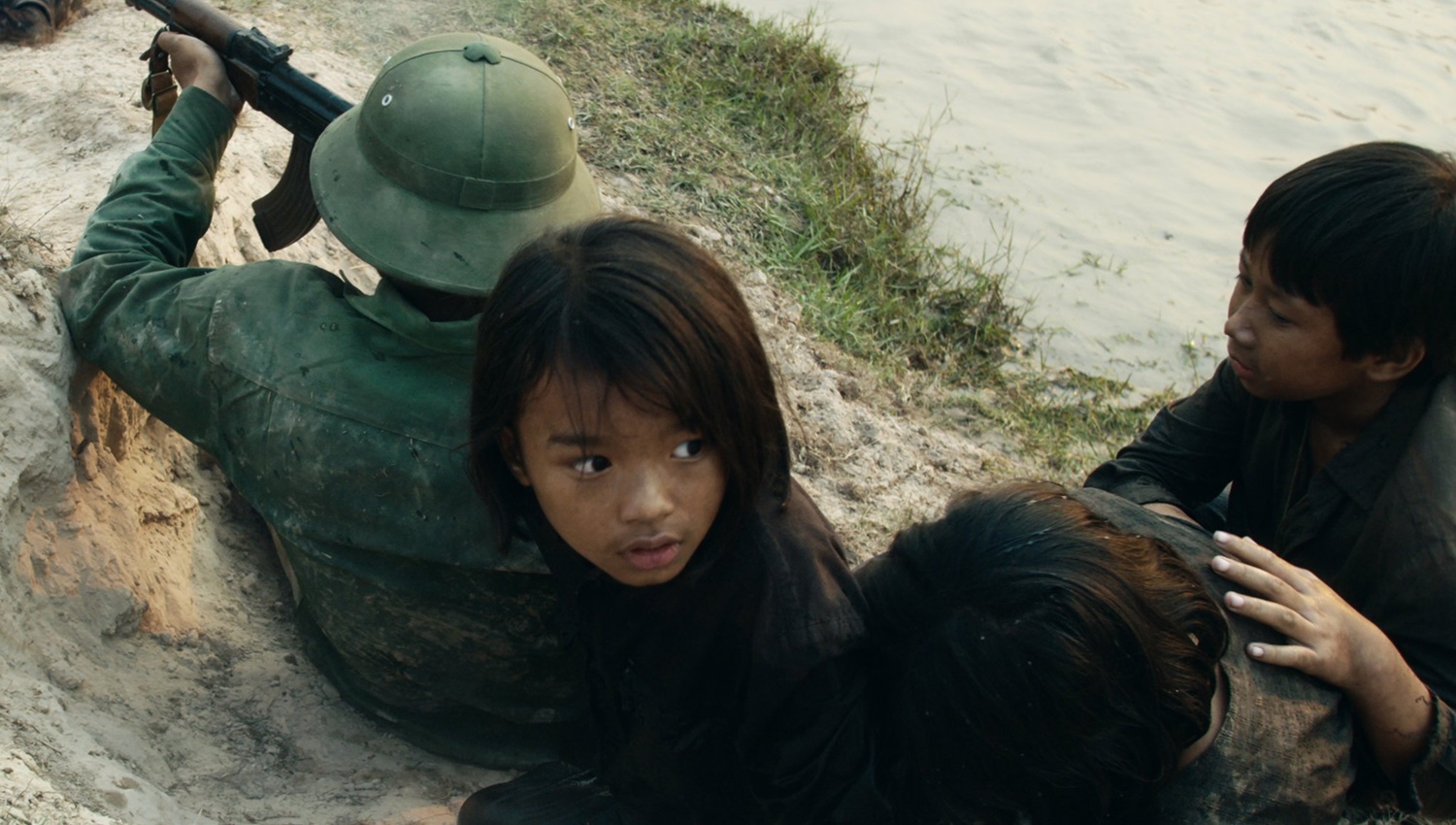
First They Killed My Father
Dustin Chase
There are two reasons you are reading this review, both reasons are also why First They Killed My Father exists in the first place. The first, is simply because it’s the latest film from director Angelina Jolie. Her celebrity status as an actor gives her access to audiences that any other director behind such subject matter wouldn’t be afforded. The second is, because First They Killed My Father is the official foreign language submission from Cambodia to the 90th Academy Awards. Told mostly through visuals instead of dialogue (similar to her previous endeavor By the Sea), ‘Father’ has no recognizable marque stars, obviously a foreign film, it’s long, dark and difficult to sit through. That’s where Netflix comes in, providing a home for Jolie’s latest cinematic historical awareness project.
7-year-old Loung Ung (Moch) and her family are forced from their home in Phnom Penh when militants begin marching through the streets. ‘The city will be bombed, but you can return in three days,’ they are told. The Ung family disguise themselves as farmers, because if the Khmer Rouge knew of the Ung’s family’s involvement with the government, they would all be executed. They flee by truck, then foot, until they reach northern territory where all families are forced to farm and work the land. “In the new Cambodia there is no rich, no poor. No more individualism or private property,” they are told. The Communist Party of Kampuchea was re-educating citizens as they called it, putting guns in the hands of anyone they could force to fight for their cause.
If the goal is education, First They Killed My Father succeeds. Anything beyond that, for the average viewer, will be a disappointment.
While Jolie’s work behind the camera continues to be technically impressive as the scope of her movies grow with each film, she has not managed to find a way to deliver her work to a wide audience. The nobility in her work is most laudable, if she hadn’t funded and invested in a story about Cambodian genocide, would anyone else? However, on the same note, will anyone watch a film that’s so detached from entertainment, from something anyone would want to spend two hours and 17 minutes with. The story of Loung Ung who grew up to be an author and human rights activist is a heartbreaking one and Jolie’s visual interpretation of her childhood isn’t all unlike what we saw in Beasts of No Nation.
Again, Jolie employs the best when it comes to director of photography, in this case Anthony Dod Mantle, behind such great visual works as 127 Hours and Rush. It’s his eye that guides the viewer through the film as Moch and other acting discoveries mostly react to sights and sounds rather than deliver performances. Jolie’s doesn’t focus on the violence as seen in her most commercial film to date Unbroken, instead on the brutality of war time though the eyes of a child. If the goal is education, First They Killed My Father succeeds. Anything beyond that, for the average viewer, will be a disappointment.
Final Thought
Technically Jolie’s latest directorial effort is sound but it’s not a film for the average moviegoer despite the educational value it contains.
